'How could I find £3,000 to pay for my mum's funeral?'
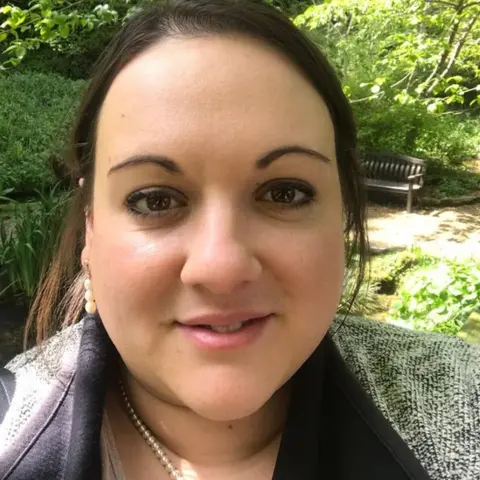 Leyli Beheshty-Zadeh
Leyli Beheshty-Zadeh
2016 was a difficult year for Leyli Beheshty-Zadeh. Her grandmother's death was followed closely by her mother's, and she found herself having to arrange two funerals in the space of five months.
"The vulnerability you feel at this time is immense and indescribable," Leyli says.
When it came to organising her mother's funeral, it was a real struggle to cover the costs. When she died, her mother had just £3.62 in her bank account, Leyli says.
While the local funeral directors she used on the Isle of Wight were sympathetic and helpful, and she and her sister officiated at the funeral, and the family provided flowers, the bill for the cremation came to more than £3,000.
"Where was I supposed to find money like that?" says Leyli, who had been a full-time carer for her disabled mother for 11 years. "I was living on carer's allowance of £62 per week which, incidentally, I had been stripped of the moment Mum moved into a hospice.
"I was told to just go and get a job - I wasn't given any time to grieve," she says.
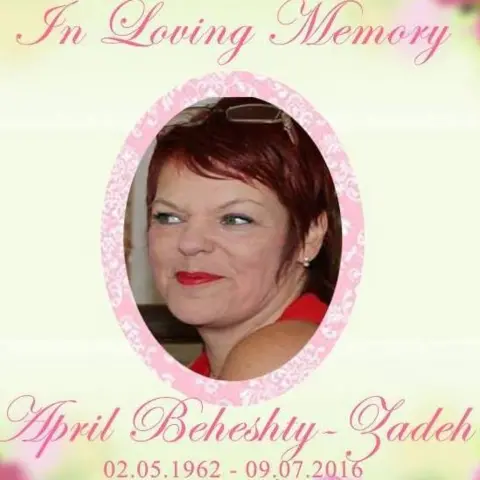 Leyli Beheshty-Zadeh
Leyli Beheshty-Zadeh
In the end, her mother's older brother paid off a chunk of the funeral costs, which left a more manageable amount for her and her siblings to pay off.
Ashes to ashes
The average cost of a funeral in the UK is £4,271, according to insurer SunLife. That's risen 4.7% over the last year.
Increasing funeral costs are a cause for concern for competition regulators, who launched a review of the market in June.
There is a state safety net, the Funeral Expenses Payment, available to people on certain benefits, but critics say it still leaves a shortfall that has to be picked up by families.
But there are more affordable options available.
One way people can reduce costs is to arrange a direct cremation, which became more high profile after the death of David Bowie in 2016. The rock legend was privately cremated in New York with no frills.
Direct cremations are not attended by mourners, and there is no funeral service. The body is taken directly to a crematorium, and the ashes are then either returned to the family, or scattered at that crematorium's remembrance garden.
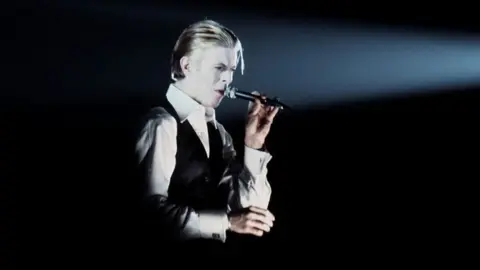 Getty Images
Getty ImagesIn David Bowie's case, his ashes were reportedly scattered in Bali.
SunLife puts the average cost of a direct cremation at £1,712, which represents a fall of 6.7% since last year.
"I would have gone for direct cremation had I known it was an option," says Leyli.
"My mum wasn't really one for being the centre of attention or having a 'big do'. We could have just had a simple gathering for family and friends instead," she adds, without having to conform to the "strict timetable" imposed in a crematorium.
Baby boomers
Only about 2% of cremations are direct at the moment, says SunLife, but demand does seem to be growing. The UK's second biggest funeral provider Dignity saw a fivefold increase in demand for its Simplicity direct cremation service in the first half of 2018 compared with the same period in 2017.
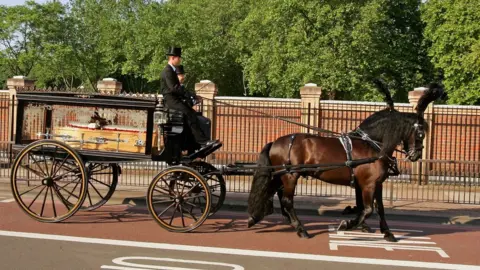 Getty Images
Getty ImagesBoth Dignity and industry leader the Co-op have cut the prices of their low-cost funeral services this year amid increased competition in what is largely an unregulated sector.
There are now firms that specialise in direct cremations - firms such as Pure Cremation.
Co-founder Catherine Powell says the people who opt for direct cremation tend to be relatively affluent people who could afford a more lavish send-off but "simply don't want one".
Direct cremation tends to appeal to people who are not interested in a "staid and static and inflexible" funeral, but who want a "celebration of life", she says.
"There's a growing cohort of people who are used to personalising parties, and weddings, and to expressing themselves. Baby boomers have changed the way we do music, marriage, and leisure, and this is the natural next thing."
But direct cremations aren't for everyone.
"Some less affluent customers rejected the idea of direct cremation, feeling that they did not offer a 'proper send-off' for their loved ones," research by insurer Royal London found.
"For example, the lack of a service was particularly problematic for some participants who considered it 'uncaring'."
'DIY' funerals
However, funerals don't need to cost much at all, according to Rosie Inman-Cook, who runs the Natural Death Centre.
People can plan their own funerals, or their families can, to keep costs down, she says.
"I can't stress enough how straightforward it is," she says.
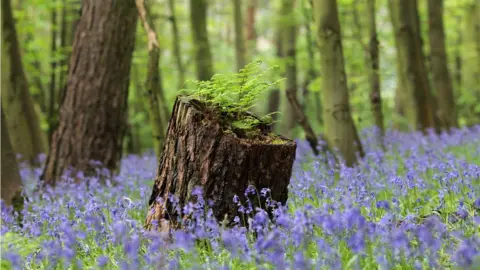 Getty Images
Getty ImagesMost people die in hospital, and a body can be transported by a family to a crematorium or cemetery using any vehicle that's safe, she says.
"You can buy a coffin online for a couple of hundred pounds," she says.
The main cost is likely to be the "disbursement fee" - that is, cremation, which averages £792, or burial, which averages £1,960.
Another potential low-cost - or no-cost - option is to donate your body to science. Enquiries about body donation to regulator the Human Tissue Authority (HTA) doubled between 2015 and 2018 to about 1,600.
However, a spokesman for the HTA says: "Not every body can be accepted. Body donation cannot be relied on as a method of avoiding funeral costs."
Buried under a tree
Other alternatives are eco-friendly or "green" burials - but again, people should do their research, Ms Inman-Cook says.
Green burial plots with memorial trees can cost as little as £600, but they can range to up to tens of thousands of pounds.
One person who opted for a high-end woodland burial was nightclub owner Peter Stringfellow, who was buried at GreenAcres Chiltern.
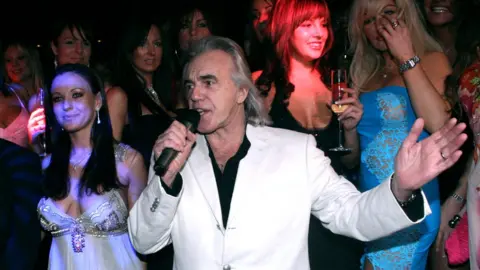 Phillip Massey/Getty Images
Phillip Massey/Getty ImagesThe idea of being buried in a more natural setting is something that appeals to 25-year-old Cameron McKiernan from Hastings, who commented on BBC Money's Affordable Living Facebook Group.
He says he would probably like to be buried under a tree. "If you plant a tree, then a tree will grow. It's living, and you'll be able to get some use out of it," he says.
He's not actively planning a funeral, but has started to think about what he wants to happen after his death.
"Do you want a day of mourning, or do you want a day of celebration?" he says.
"It's a bit like a wedding - you don't have to spend lots of money on a single day. There are alternatives you can use."
